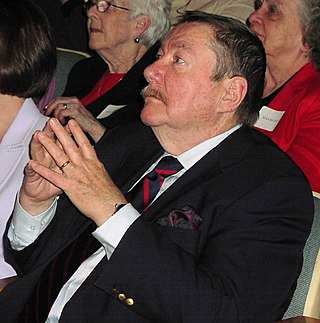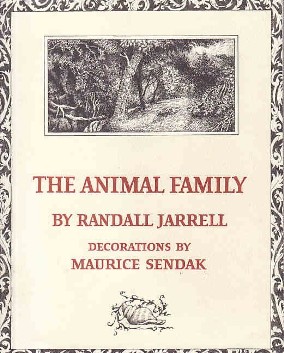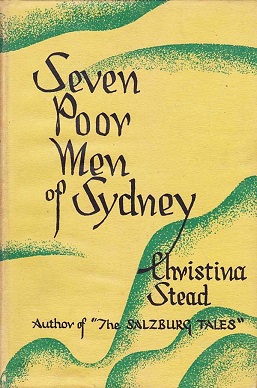
Christina Stead was an Australian novelist and short-story writer acclaimed for her satirical wit and penetrating psychological characterisations. Christina Stead was a committed Marxist, although she was never a member of the Communist Party. She spent much of her life outside Australia, although she returned before her death.

Jonathan Earl Franzen is an American novelist and essayist. His 2001 novel The Corrections drew widespread critical acclaim, earned Franzen a National Book Award, was a Pulitzer Prize for Fiction finalist, earned a James Tait Black Memorial Prize, and was shortlisted for the International Dublin Literary Award. His novel Freedom (2010) garnered similar praise and led to an appearance on the cover of Time magazine alongside the headline "Great American Novelist". Franzen's latest novel Crossroads was published in 2021, and is the first in a projected trilogy.

Robert Brown Parker was an American writer, primarily of fiction within the mystery/detective genre. His most famous works were the 40 novels written about the fictional private detective Spenser. ABC television network developed the television series Spenser: For Hire based on the character in the mid-1980s; a series of TV movies was also produced based on the character. His works incorporate encyclopedic knowledge of the Boston metropolitan area. The Spenser novels have been cited as reviving and changing the detective genre by critics and bestselling authors including Robert Crais, Harlan Coben, and Dennis Lehane.

Pictures from an Institution: a Comedy is a 1954 novel by American poet Randall Jarrell. It is an academic satire, focusing on the oddities of academic life, in particular the relationships between the characters and their private lives. The nameless narrator, a Jarrell-like figure who teaches at a women's college called Benton, makes humorous observations about his students and his fellow academics; especially the latter, and in particular the offensively tactless novelist Gertrude, modeled on Mary McCarthy.

How to Be Alone is a 2002 book collecting fourteen essays by American writer Jonathan Franzen.
Jennifer Weiner is an American writer, television producer, and journalist. She is based in Philadelphia, Pennsylvania. Her debut novel, published in 2001, was Good in Bed. Her novel In Her Shoes (2002) was made into a movie starring Cameron Diaz, Toni Collette, and Shirley MacLaine.

The Animal Family is a 1965 children's novel by American poet and critic Randall Jarrell and illustrated by noted children's book illustrator Maurice Sendak. It is a 1966 Newbery Honor book and has a significant following among adult readers.

Love & Sleep is a 1994 fantasy novel by John Crowley. It is the second novel in Crowley's Ægypt Sequence and a sequel to Crowley's 1987 novel The Solitudes. In it, the protagonist Pierce Moffett continues his book project begun in The Solitudes, exploring especially the relevance of systems of thought, even those magical and supposedly obsolete in writing a non-fiction book about the Renaissance and Hermeticism.

Freedom is a 2010 novel by American author Jonathan Franzen. It was published by Farrar, Straus and Giroux. Freedom received general acclaim from book critics, was ranked one of the best books of 2010 by several publications, and called by some critics the "Great American Novel". In 2022, it was announced that Freedom would be adapted for television.

I'm Dying Laughing: The Humourist is a novel by Christina Stead (1902–1983). It was published posthumously by Virago Press in 1986, edited and with a preface by Ron Geering.

The Corrections is a 2001 novel by American author Jonathan Franzen. It revolves around the troubles of an elderly Midwestern couple and their three adult children, tracing their lives from the mid-20th century to "one last Christmas" together near the turn of the millennium. The novel was awarded the National Book Award in 2001 and the James Tait Black Memorial Prize in 2002.

Desperate Characters is a 1970 novel by Paula Fox.
"Why Bother?", originally published as "Perchance to Dream: In the Age of Images, a Reason to Write Novels", is a literary essay by American novelist Jonathan Franzen. It is often referred to as "The Harper's Essay". First published in the April 1996 issue of Harper's magazine, the essay concerns the persistence of reading within the context of technological growth and distraction. Franzen recounts his meditations on the state and possibility of the novel form, often against the backdrop of his personal experience, eventually concluding that the novel still has potential cultural agency in the United States, and often gains it by paradoxical drives of both culture and author.

Farther Away is a 2012 collection of essays by the American writer Jonathan Franzen.
"Mr. Difficult", subtitled "William Gaddis and the problem of hard-to-read books", is a 2002 essay by Jonathan Franzen that appeared in the 9/30/2002 issue of The New Yorker. It was reprinted in the paperback edition of How to Be Alone without the subtitle.

Purity is a novel by American author Jonathan Franzen. His fifth novel, it was published on September 1st, 2015 by Farrar, Straus and Giroux.

Seven Poor Men of Sydney (1934) is the first novel by Australian writer Christina Stead.

For Love Alone (1944) is a novel by Australian writer Christina Stead.

Lydham Hall is a state heritage-listed former rural residence at 18 Lydham Avenue, Rockdale in New South Wales, Australia. The house is currently used as a local museum holding a collection of furniture and objects dated from the 1860s. Run by the St George Historical Society, it is opened to the public on the first Sunday of every month.

Crossroads: A Novel is the sixth novel by American author Jonathan Franzen, published on October 5, 2021. It is a family saga set during the 1970s and centers on the Hildebrandt family in the fictional small town of New Prospect, Illinois. It was first announced on November 13, 2020, by Franzen's publisher Farrar, Straus and Giroux.

















